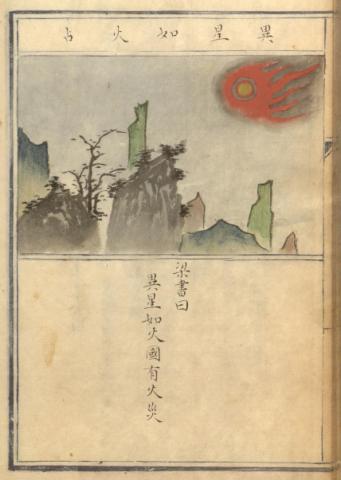Sarah Naramore, University of Notre Dame
2014 to 2015 Research Fellow
Nicole Belolan, University of Delaware
2014 to 2015 Research Fellow
Jeannie Shinozuka, Illinois at Urbana-Champaign
2014 to 2015 Research Fellow
Updates about the Consortium are available in our newsletter, including news about fellowships, events and members' collections.
Working Groups Program: Overview
2014-2015 was another highly successful year for the Consortium’s working groups program. The Consortium hosts ten working groups on specialized topics in the history of science, medicine and technology. Each working group meets for a 90 minute session in the afternoon or evening, once per month during the academic year. Typically about nine scholars participate in each session, attending either in person or online. Each of the groups is organized and led by one to three conveners.
On July 1st, 2015 the exhibition Fantastic Worlds: Science and Fiction, 1780-1910 will debut in the newly refurbished Smithsonian Libraries Exhibition Gallery located in the west wing of the National Museum of American History. On display will be some of the very works that exposed an eager and curious public to the wealth of new ideas and inventions of the 19th century, including landmarks of scientific discovery, imaginative fiction, popular science, newspaper hoaxes, dime novels, and more.
Historical Society of Pennsylvania releases journal issue with contributions from Consortium fellows
The spring 2015 issue of Pennsylvania Legacies, published by the Historical Society of Pennsylvania, focuses on the history of science and technology in the Keystone State and includes articles from past Consortium fellows Jessica Linker and Matthew White.
The American Philosophical Society has completed the processing of the Herman Goldstine papers. A mathematician by training, Goldstine is best known for his pioneering work in developing computers, helping to construct both ENIAC and EDVAC systems. Much of his career was spent at IBM and the Institute for Advanced Study. Learn more about the American Philosophical Society's collections here.
Congratulations to former Consortium fellow Douglas O’Reagan. Starting in fall of 2015, O’Reagan will take up a post as Visiting Assistant Professor of Digital Humanities and Lead Archivist of the Hanford History Project at Washington State University - Tri Cities. O’Reagan is currently Postdoctoral Fellow at the Coleman Fung Institute for Engineering Leadership at University of California Berkeley.
Congratulations to former Consortium fellow Jonson Miller, who is currently Associate Teaching Professor in the Department of History and Politics at Drexel University. This year he served as technical consultant on a series of four children's books on the history of technology, published by Capstone Press. The books are entitled The First Computers, The First Airplanes, The First Cars, and The First Space Missions.
Pagination
- Previous page
- Page 43
- Next page
